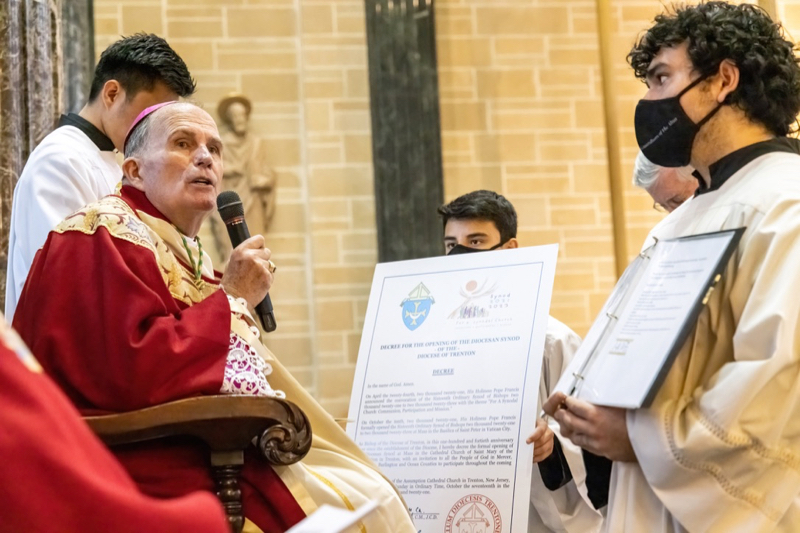“The Church needs fixing,” scripture scholar Fr Kieran O’Mahony told the annual meeting of the Association of Catholic Priests. He argued that synodality is “the only game in town” and if the synodal journey fails, the Church will be “in serious trouble”.
Setting out the context in which the worldwide synod and the national synod in Ireland are taking place, the Augustinian said: “The effective handing on of faith has ceased for some decades and we are now largely left with a shell of practice”.
He identified two major areas where the Church needs fixing as the place of women in the Church and the role of the laity.
“Eventually we are going to have to find some way to say that tradition does not exclude women from all levels of involvement and ministry,” he told the Zoom event.
The priest, who is a member of the Dublin diocesan committee for synod, described the synodal pathway as Pope Francis’ “biggest idea so far”.
The proposed consultation with every parish and every catholic in the world was “extraordinary” and differed from a traditional synod in that the process of getting there was at least as significant as the final gathering in Rome in 2023.
Pope Francis, he said, aimed to recover the “thrill” of Christian faith through gospel joy and to decentralise an “unwieldly” enormous church.
Synodality for the Pope was “a recovery of the ecclesiology of the people of God” which sought to get back the missed opportunities of the Second Vatican Council.
“Synodality in this new form is a recovery of the true nature of the Church after a very hierarchical period and a very centralised period,” he observed.
Urging people to become acquainted with the writings of the Venezuelan, Rafael Luciani, the “theologian of synodality”, the Irish scripture scholar said synodality, “isn't simply about synods. It is a way of being Church, a way of listening and a way of discerning together, which we have to learn. It is new, given the breadth of consultation.”
As to whether it will work, he said nobody knows, he added. But the Church had a bank of experience to draw on as synodality had been working for decades in the South American Church.
“In the current crisis, both in the Church as institution, and also in faith as a project, I think this is the only game in town. And if this fails, then we are in serious trouble. So, we have to make this work.”
Two members of the synodal journey in Killala diocese, Peter McLoughlin and Patricia Melvin, outlined their experiences and the core principles of a credible listening process there as well as some of the difficulties encountered with the local priests’ council.
Meanwhile, in the US, Archbishop Christophe Pierre, the apostolic nuncio to the United States, spoke to the bishops yesterday about the importance of listening to people in the church and being open to the work of the Holy Spirit. He addressed the bishops on the first day of two days of public sessions at their autumn general assembly in Baltimore.
The archbishop noted that he has been in the role of apostolic nuncio for five years and has been on a journey with the US bishops through challenges of religious disaffiliation, the sexual abuse crisis, increasing secularisation, polarisation within the nation and the Church, and most recently the global pandemic.
Discussing synodality, he said “I believe that synodality is an answer to the challenges of our time and to the confrontation, which is threatening to divide this country, and which also has its echoes in the church. It seems that many are unaware they are engaged in this confrontation, staking out positions, rooted in certain truths but which are isolated in the world of ideas and not applied to the reality of the lived faith experience of the people of God in their concrete situations.”



 Loading ...
Loading ...